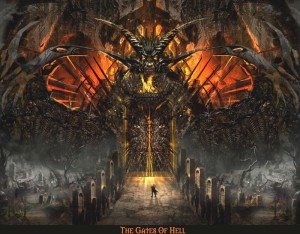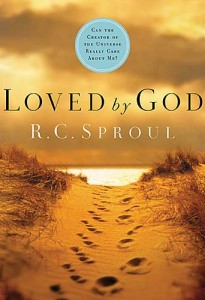 Here is some good insight from Kevin Deyoung.
Here is some good insight from Kevin Deyoung.
He writes: I hope I don’t ruin one of your favorite verses. Ok, I kind of hope I do. But only so it can be one of your favorite verses in a better way.
In Matthew 16 Jesus takes his disciples to the district of Caesarea Philippi to ask them a question, “Who do people say that the Son of Man is?” They stumble around a bit giving the latest Facebook updates from the crowd. Then Peter pipes up. “You are the Christ, the Son of the living God.” What a guy, Cephas. Jesus commends his outspoken disciple, “You are Peter, and on this rock I will build my church, and the gates of hell shall not prevail against it” (v. 18).
Since the Reformation there has been a lot of discussion about “this rock” and what it means for the authority of the Pope (not much it turns out). There has been little controversy, however, about the phrase “the gates of hell.”
I’ve heard several sermons on “the gates of hell” and have seen the phrase referenced in Christian books numerous times. The second half of Matthew 16:18 has to be one of the top ten favorite Bible promises. I can hear the voices right now: “Think about the picture here. Jesus says the gates of hell will not prevail against the church. Now tell me, how do gates prevail? When have you ever seen gates on the march? They don’t attack. They fortify. They are there to hold their ground. That’s all. Hell is not on the offensive, brothers and sisters. The church is. The church is marching into all the hells in this world, ready to reclaim every square inch for Christ. And when we storm the gates of hell, Christ promises we cannot fail. We will prevail! It’s time to put the devil on the run. It’s time to save souls and destroy strongholds. It’s time to reclaim this world for Christ. Listen up church, the gates of hell shall not prevail against us!”
Or something like that.
Of course, who can fault the zeal to save souls, make a difference in the world, or fight the good fight? The only problem is that the whole thing is built on faulty exegesis. One of the cardinal rules of biblical interpretation is to let the Bible interpret the Bible. So when we come to a phrase like “the gates of hell” we need to stop ourselves from imagining what we think this means, and do the hard work of finding out what it actually does mean.
The phrase pulai hadou (gates of hell) is a Jewish expression meaning “realm of the dead.” The same two words appear in the Septuagint version of Job 38:17 – “Have the gates of death been revealed to you, or have you seen the gates of deep darkness [puloroi de hadou]?”). They appear again in Isaiah 38:10 – “I said in the middle of my days I must depart; I am consigned to the gates of Sheol [pulais hadou] for the rest of my years”.
In both passages, pulai hadou is a euphemism for death. Notice the parallelism in both passages. The first half of each verse clarifies that the second half of the verse is not about hell but about death. The gates of hell represent the passageway from this life to the grave.
Consequently, Jesus’ promise to Peter is not about storming Satan’s lair and conquering demonic powers. In fact, the repeated injunction in Ephesians 6 is “to stand.” Christ defeated the devil (John 16:11). Our responsibility is to hold fast and resist. Carman’s fantastic music videos notwithstanding, we are not demonslayers. The promise in Matthew 16 is not about venturing out on some Dungeons and Dragons spiritual crusade, but about Christ’s guarantee that the church will not be vanquished by death.
If you think about it, this makes much more sense of the imagery. Defensive gates can be used in an offensive way because Jesus is simply talking about death. Death stalks each one of us, but those who confess Jesus as the Christ know that death is not the end. We have the victory through our Lord Jesus Christ (1 Cor. 15:57). Jesus isn’t asking us to conquer anything, except perhaps our fear of the grave.
So preach and believe in Matthew 16:18 with all your might. But don’t misunderstand the promise. Jesus assures us of something even better than triumphalism here and now. He promises eternal life. With intense opposition and persecution, the early church was under attack from the gates of hell. But just as Jesus conquered the grave, so the gates of hell-death itself-will not prevail against those who belong to Christ. Or as Jesus himself puts it, “Whoever believes in me, though he die, yet he shall live (John 11:25).
That makes Matthew 16:18 a pretty cool promise after all.

 An excerpt from Dr. R. C. Sproul’s book, Loved by God.
An excerpt from Dr. R. C. Sproul’s book, Loved by God.